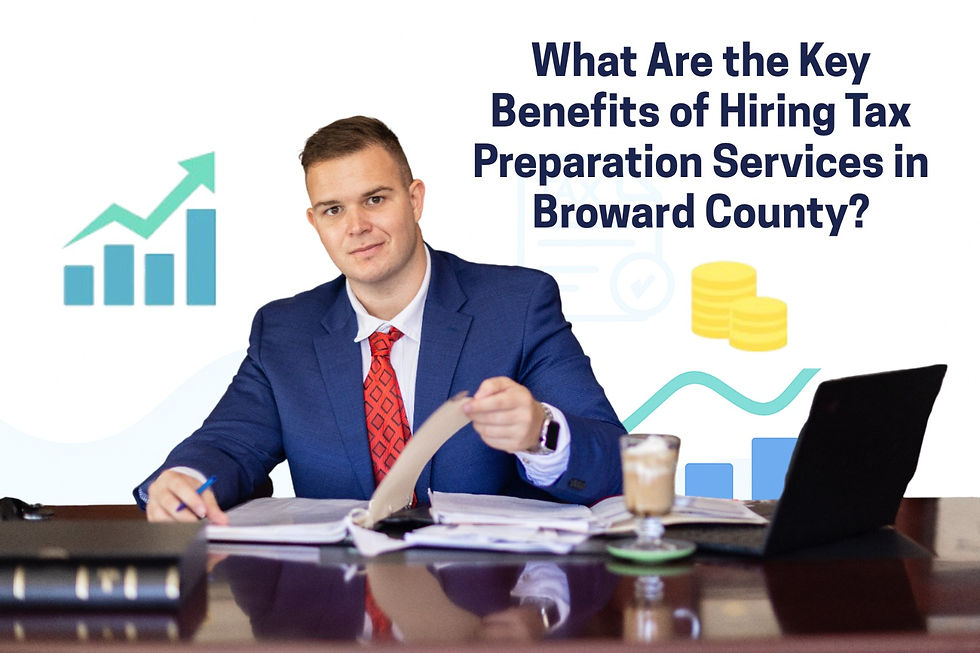Everything You Need to Know About FBAR Filing and How an Attorney Can Help
- Vladislav Grant
- Jul 15
- 3 min read
Updated: Sep 15
If you’re a U.S. citizen or resident with financial interests or signature authority over foreign bank accounts, FBAR filing isn’t optional—it’s the law. Yet, many taxpayers remain unaware of their responsibilities, risking steep penalties and even legal action. FBAR, short for Foreign Bank Account Report, must be filed annually with the Financial Crimes Enforcement Network (FinCEN). Failing to file properly or on time can lead to devastating financial consequences.

In this article, we’ll walk you through everything you need to know about FBAR filing, common mistakes, the risks of noncompliance, and how an experienced FBAR attorney can guide and protect you.
1. What is FBAR Filing and Who Must File
The FBAR (Form 114) is a required annual report under the Bank Secrecy Act. It’s designed to help prevent offshore tax evasion by requiring U.S. taxpayers to disclose foreign financial accounts when the combined value exceeds $10,000 at any point in the year.
Unlike your standard tax return, the FBAR is not filed with the IRS but submitted online to FinCEN. However, the IRS does enforce penalties for failing to comply.
You’re required to file if:
You are a U.S. citizen, resident alien, or a domestic entity
You had foreign financial accounts exceeding the reporting threshold
You held either financial interest or signature authority over those accounts
These accounts may include foreign bank accounts, investment portfolios, mutual funds, or life insurance policies with cash value.
2. Common FBAR Mistakes and the Risks of Getting It Wrong
Many people who should file the FBAR don’t realize they need to. This is especially common among expats, small business owners with overseas operations, or individuals with joint or inherited accounts.
Other overlooked factors include:
Assuming small accounts don't qualify if each is under $10,000
Ignoring foreign pension accounts or retirement savings
Not filing because income taxes were paid in the foreign country
These misunderstandings can create exposure to steep FBAR tax penalties.
If you fail to file or file incorrectly, penalties vary based on whether the IRS deems the violation willful or non-willful.
Non-willful violations can result in penalties of up to $10,000 per account per year
Willful violations can lead to fines as high as $100,000 or 50% of the account balance—whichever is greater
Criminal charges are possible in cases of fraud or concealment
Because the IRS has ramped up enforcement, the stakes for even small filing errors are high.
3. Why You Need an FBAR Attorney to Stay Compliant and Protected
An experienced FBAR attorney is not only familiar with the filing process, but also with how to fix past mistakes legally and strategically.
Expert Legal Assessment
An attorney reviews your financial records and identifies which accounts must be reported. This ensures that your FBAR filing is both complete and accurate—minimizing audit risk or suspicion from the IRS.
If you missed filing in previous years, a lawyer can guide you through:
Streamlined Filing Compliance Procedures for those who acted non-willfully
Voluntary Disclosure Program (VDP) for those with willful violations seeking legal resolution
These are sensitive processes, and even a minor error could result in the loss of these protections. Legal help significantly increases your chances of a favorable outcome.
Protection During IRS Audits
If the IRS begins an investigation, your attorney can represent you, manage communications, and ensure that you don’t accidentally incriminate yourself or worsen your situation.
Because attorneys offer client-attorney privilege, your conversations remain confidential—something tax preparers and accountants cannot legally guarantee.
Final Thoughts
Understanding your obligations for FBAR filing is essential if you have foreign financial assets. While the rules may seem straightforward, mistakes are easy to make and the consequences can be severe.
That’s why working with an FBAR attorney is one of the smartest steps you can take. From helping you file correctly to defending you in case of an audit or investigation, an attorney ensures that you’re not navigating complex international tax rules alone.
If you suspect you need to file an FBAR or believe you’ve missed past filings, don’t wait for the IRS to act first. Consult a trusted attorney and take control of your compliance today.







Comments